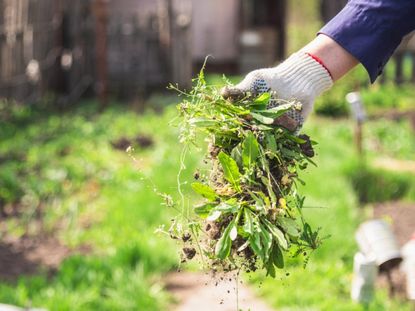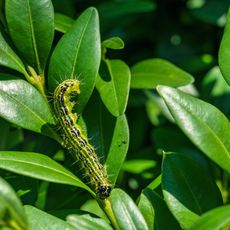Garden Weed Management: How To Control Weeds In Your Garden


Managing weeds in the garden is not one of our favorite things to do - it's more like a necessary evil. While we may have a love for plants, weeds can oftentimes become more of a nuisance in and around the garden. They compete with our garden plants for light, water, nutrients, and space.
Unfortunately, weeds are also more adapted to the areas in which they seem to pop up and are sometimes more difficult to control as a result.
Garden Weed Management
When it comes to weed control in gardens, both patience and persistence are necessary. And, of course, some weed removing tools may be handy too.
Dense planting and the application of mulch can be one of the most effective methods in managing weeds. In addition to helping with soil moisture, mulch reduces weed growth by reducing the light weed seeds require for germination. Those that do somehow germinate (and they sometimes do) can usually be pulled up rather easily.
All weeds should be removed while they are still young. Leaving them in the garden to grow or go to seed will only make their removal more difficult and allows their seeds a chance to spread. Hand pulling young weeds works well in small garden beds. They can be easily pulled up, especially when the ground is wet from watering or just after a good rain, since their roots have not yet established themselves.
Larger areas, however, may call for additional weed removing tools, like a hoe or tiller. Hoes are great for getting weeds near or in between other plants as well as in tight spaces. Both manual and powered rotary tillers can also take care of weeds, but they're best used before the garden has become established since their deep cultivation runs the risk of damaging plant roots. Therefore, you may want to focus on using these tools in areas such as rows or paths rather than within close proximity of garden plants.
Permanent Weed Control
Unfortunately, even with all our best efforts, pesky weeds can get the better of us. In these instances, a more permanent weed control regimen may be needed. This usually comes in the form of chemical control with the use of herbicides, preferably the organic types that are available. It's particularly important that you read and follow label instructions carefully, as not all herbicides for weed control are the same.
Gardening tips, videos, info and more delivered right to your inbox!
Sign up for the Gardening Know How newsletter today and receive a free download of our most popular eBook "How to Grow Delicious Tomatoes."
Additionally, herbicides are not recommended for use on vegetables or other edible plants, though some may be labeled for use on selected vegetable crops. Other types may simply be used for specific ornamental plantings.
Boiling water or white vinegar sprays are effective alternatives to chemical control, but care should be taken not to get any on nearby plants, as both of these methods kill the plants they come into contact with. Selecting the type that best fits your specific situation is critical in establishing effective weed control in gardens.
Note: Any recommendations pertaining to the use of chemicals are for informational purposes only. Chemical control should only be used as a last resort, as organic approaches are safer and more environmentally friendly.

Nikki Tilley has been gardening for nearly three decades. The former Senior Editor and Archivist of Gardening Know How, Nikki has also authored six gardening books.
-
 Urban Composting Guide: How To Compost In The Middle Of The City
Urban Composting Guide: How To Compost In The Middle Of The CityUrban composting does not have to be daunting. You can compost in the city, and maybe even try some urban worm composting!
By Mary Ellen Ellis
-
 Shrub Diseases And Pests To Watch Out For
Shrub Diseases And Pests To Watch Out ForShrub diseases and pests can be challenging. Learn how to recognize and eradicate them before they can present a danger to your plants.
By Susan Albert